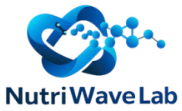In the human body, researchers have identified nine primary biological mechanisms that lead to aging. One of the key mechanisms is the shortening of telomeres—the protective ends of chromosomes, which get progressively shorter with each cell division. Telomeres and the enzyme telomerase associated with them became the subject of significant scientific research after Elizabeth Blackburn, Carol Greider, and Jack Szostak were awarded the Nobel Prize in Physiology or Medicine in 2009 for their discoveries concerning the role of telomerase in the protection of chromosomes. These findings initiated a new direction in biogerontology and laid the foundation for the development of drugs like Epitalon, which aim to slow down the aging process by activating telomerase and thereby increasing the length of telomeres.
Epitalon (Epithalon) as a Leader in Anti-Aging Therapy
When it comes to extending telomeres and slowing down the aging process at the cellular level, Epitalon emerges as one of the most potent and thoroughly studied agents in this area. It is regarded as a leader among substances aimed at activating telomerase and lengthening telomeres.
While other agents like TA-65, which is derived from the root of Astragalus membranaceus and also activates telomerase, do exist, their properties and efficacy are not comparable to those of Epitalon. TA-65 does possess some ability to restore telomeres, but it does not achieve the same level of effectiveness as Epitalon, particularly in the context of scientifically validated research and clinical applications.
In addition to these agents, the scientific community continues to explore other molecules and peptide complexes that can stimulate telomerase activity. However, despite the variety of approaches and potential treatments, Epitalon remains at the forefront of research into combating cellular aging due to its pronounced effectiveness and results that have been confirmed by numerous scientific studies.
Consequently, Epitalon is not merely one of the tools available in biogerontology; it is the most powerful weapon in the battle against telomere shortening, making it uniquely valuable in the effort to reverse the aging processes at the cellular level.
How Does Epitalon Work?
Epitalon is a peptide that can be thought of as a special “trainer” for our cells. It helps cells maintain their youth and vitality by managing the length of telomeres—the protective “caps” at the ends of each chromosome in our bodies.
A Simple and Understandable Example:
Imagine that each cell in your body is like a candle, and the telomeres are the wick of that candle. Each time the cell divides, the wick gets shorter, and when it burns down completely, the cell ages and eventually dies. Epitalon acts like a special tool that can unexpectedly add a bit of length to the candle wick each time it begins to burn down. This allows the candle to burn longer, which in the cellular world means that cells can continue dividing and functioning normally for an extended period.
Mechanism of Action:
On a molecular level, Epitalon stimulates the production of telomerase, an enzyme that “refuels” the telomeres with new material. It’s as if you could redraw new divisions on your life’s ruler each time it begins to fade. Thus, cells retain their ability to divide, which is crucial for the renewal of tissues and slowing down the aging process.
Mouse Studies:
One of the most significant studies conducted on mice has shown that Epitalon can substantially extend the lifespan of these animals. Research carried out by Russian scientists demonstrated that regular administration of Epitalon increases the lifespan of mice by 25-30%. This is linked to the activation of telomerase, an enzyme that lengthens telomeres, the protective ends of chromosomes that shorten with each cell division.
Cell Culture Studies:
In studies on cell cultures, it has been shown that Epitalon stimulates telomerase activity, contributing to the lengthening of telomeres. This leads to a slowing of the aging process and an increase in the life cycle of the cells. Cells treated with Epitalon exhibited fewer signs of aging and higher viability compared to control groups.
Clinical Studies on Humans:
Although there are not many clinical studies of Epitalon on humans, the available data suggest potential benefits, including improvements in skin condition, reduction in fatigue levels, and overall improvements in health markers. Improvements were also noted in immune function and a reduction in the frequency of respiratory diseases among elderly patients who regularly took Epitalon
Primate Studies:
While research on primates is limited due to ethical and financial considerations, preliminary studies have shown promising results. In one of the studies, primates were regularly administered Epitalon over several years, which led to a slowdown in certain aspects of aging and improvements in cognitive functions.
Clinical Potential
Despite the limited number of clinical trials on humans, existing data indicate potential benefits of Epitalon in improving skin condition, reducing fatigue levels, and enhancing overall health markers. Improvements have also been noted in immune function and a reduction in the frequency of respiratory diseases among elderly patients who regularly take Epitalon.
Conclusion: A New Horizon in Aging Management
Epitalon represents a significant breakthrough in the science of longevity. By actively influencing telomere length and stimulating telomerase activity, it opens new horizons in understanding and managing the aging processes. As the scientific community continues to study Epitalon, uncovering new aspects of its action and potential applications, there is reason to believe that this drug could significantly enhance life duration and quality in the future.
The Vanguard of Anti-Aging Research
Positioned at the forefront of scientific development, Epitalon promises to open new possibilities for combating aging and extending active life. Ongoing research and promising results from various studies underscore its potential as a transformative agent in anti-aging therapy. In the future, Epitalon may become a cornerstone in the quest for longevity, serving as a beacon of hope for those looking to preserve youth and health for a longer duration of their lives.
Disclaimer: The information provided on this site is intended solely for educational purposes and does not constitute a call to action. It is designed to enhance knowledge only, and we assume no responsibility for its use. By accessing this information, you acknowledge and agree to these terms.

